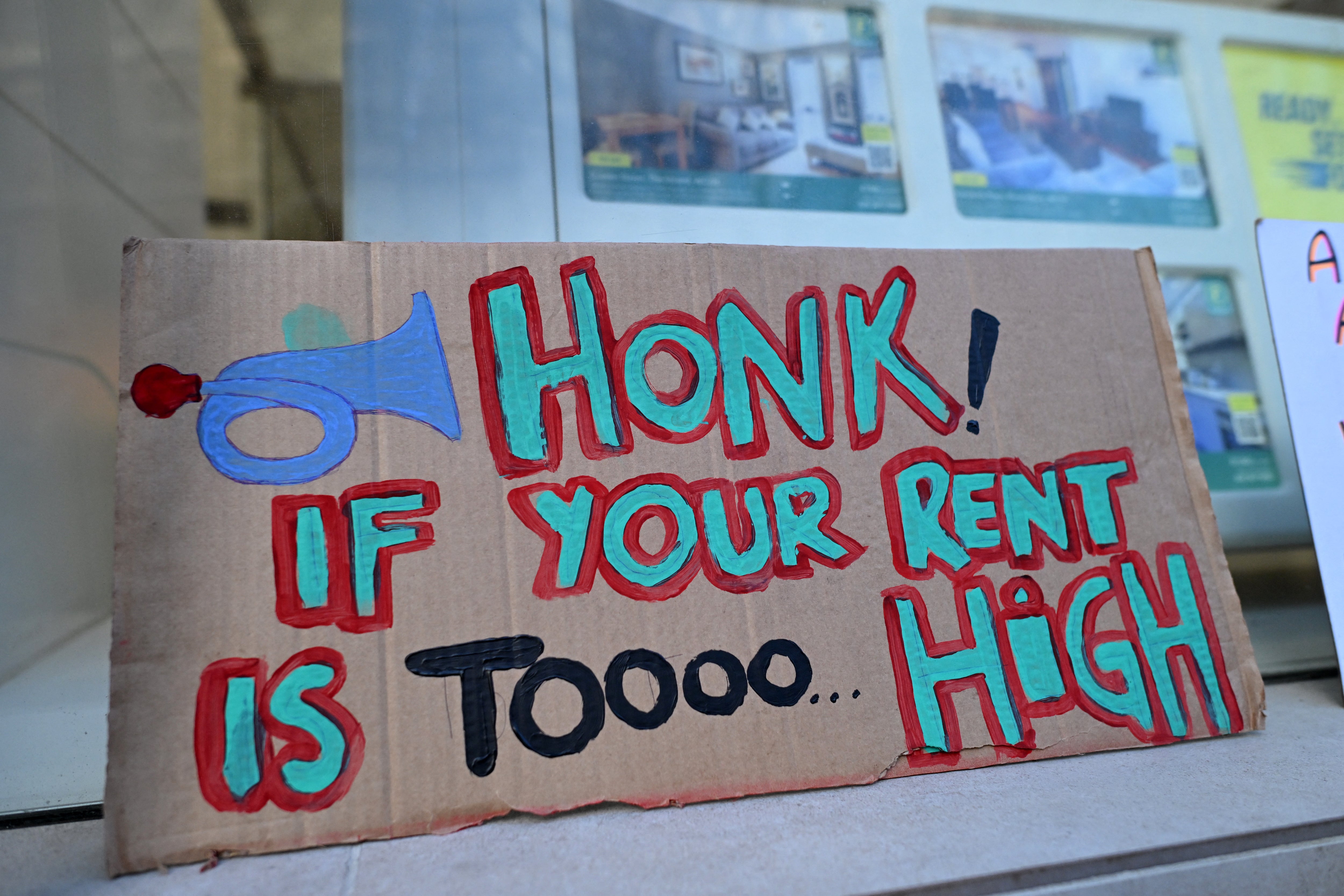One in four renters struggles to get their full deposit back at the end of a tenancy, according to new research.
Almost a quarter of the 1,000 private tenants surveyed – 23 per cent – said they had experienced deposit deductions that they did not think were reasonable. Of these, only one in five had used the deposit scheme’s dispute resolution service, a free service designed to deal with disputes about the amount of money tenants receive back from their landlords.
Other renters said they hadn’t used the service because they weren’t aware they had the right to challenge their landlord (18 per cent), or they thought it would take too long (13 per cent), or that their landlord had broken the law by not protecting their deposit (18 per cent).
The survey, carried out by Generation Rent, found that one in four respondents had needed to borrow money from their friends or family to cover their deposit – while 14 per cent had used credit cards or loans, 32 per cent had to use their savings, and only 29 per cent of tenants were able to cover the cost from their current account.
Data obtained through freedom of information requests by the charity last year showed that the average deposit was £1,118 in England and Wales, and £793 in Scotland.
Landlords can ask for up to five weeks’ rent as a deposit and also for a month’s rent in advance before a tenancy agreement is signed. In May 2024, the average private rent in Great Britain was £1,262 per month – £101 higher than 12 months ago.

The average rent for England was a bit higher at £1,301, with £736 being the average for Wales and £957 for Scotland, according to Office for National Statistics data.
Landlords must put their tenant’s deposit in a government-approved tenancy deposit scheme if they are renting out their property on an assured shorthold tenancy that started after 6 April 2007.
A total of 4.61 million tenancy deposits were protected in England and Wales last March, amounting to a sum of £5.15bn, according to Generation Rent.
Of the 35 tenants in the Generation Rent survey who had disputed their landlord’s claim on their deposit, over half had received more money back than their landlord initially proposed, and three came away with less money.
However, only 15 received the undisputed portion of their deposit while the dispute process was taking place, with the others left waiting for their money until the scheme had made a decision.
Sarah Edmonds, 40, was unable to get most of her deposit back from a rental two years ago, after the landlady tried to not return any of the money.
Ms Edmonds, who lives with her partner Andy Hamilton, 38, and their two small children, explained: “The main problem was damp when we were living there, which our landlady didn’t do anything about. We were there for three and a half years and there was no general maintenance to the property.
“It was in different rooms, shoes went mouldy in my cupboard, and you could see it on the walls.”
When it came to leaving, the landlady tried to claim the deposit back over wear and tear to the property as well as needing to replace the front gate. “There was an external gate to the driveway; it had been primed and then not painted,” Ms Edmonds said.
“[The landlady] had been told that it needed to be painted, we even reminded her, and then it rusted. When it came to getting the deposit back, she wanted the full money back for the gate. The deposit resolution service – even though we sent them the texts where we had reminded her to paint it – made us pay around £400 to £500 towards it.”
In the end, they got back about £150 of a deposit of around £1,000.
Kirsty Bartholomew, 46, who lives in Newark, Nottinghamshire, has moved with her family around seven times in the last 10 years. Most of these moves have been trouble-free, but on one occasion her landlord tried not to give her deposit back.
She explained: “There was a lot of damp in the house. It was a terrace house that was very exposed to the elements, and so, almost as soon as we moved in, we were having to wipe the walls down.
“We mentioned it to our landlord and they had to repoint the outside of the house [repairing the mortar joints between bricks]. The external wall never quite recovered, and some of the damp and mould was still there.”
When it came to leave, Ms Bartholomew offered to paint over the mould, but the landlord said she could leave it. Despite this, they then said Ms Bartholomew couldn’t have the deposit back due to the state of the house. After going to the dispute resolution service, Ms Bartholomew was able to get the deposit back because the landlord had taken too long to lodge it into an assured scheme.
Have you had problems getting your rental deposit back? Share your story with [email protected]
Ben Twomey, chief executive of Generation Rent, said: “While the tenancy deposit system is one of the longest-standing protections for renters, too many of us are still getting a raw deal. Despite the schemes offering to adjudicate disputes, many tenants are discouraged by the threat of delays, mystifying rules around what counts as wear and tear, and landlords’ dirty tricks.
“This leaves many tenants with less money every time we move, with a large share having to borrow or dip into savings to put a roof over their head.”
Tom Darling, director at the Renters’ Reform Coalition, said: “Instead of renters being forced to find a new deposit every time they move, the government should consider a deposit passporting scheme that could transfer existing deposits between tenancies. This would end the pressure many renters face to accept unfair charges simply to get a deposit back quickly.”
A spokesperson for the Ministry for Housing, Communities and Local Government said: “It is unacceptable that some landlords are failing to protect tenants’ deposits, and we continue to monitor the system so we can improve it.
“This government will transform the private rental sector through our Renters’ Rights Bill, which will ban Section 21 ‘no fault’ evictions, cap advance payments to one month’s rent, end unfair bidding wars, and give tenants stronger powers to challenge excessive rent hikes.”




